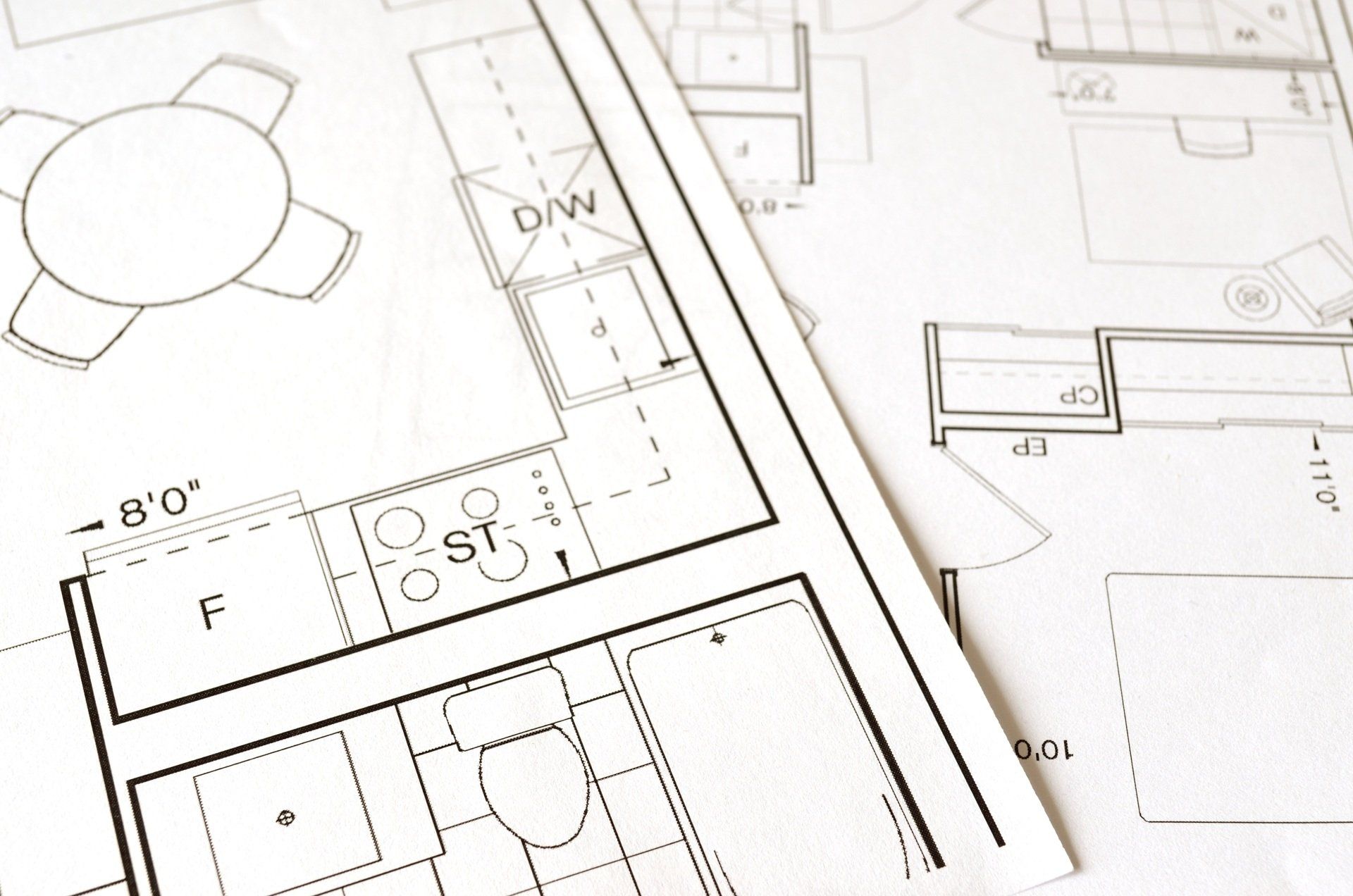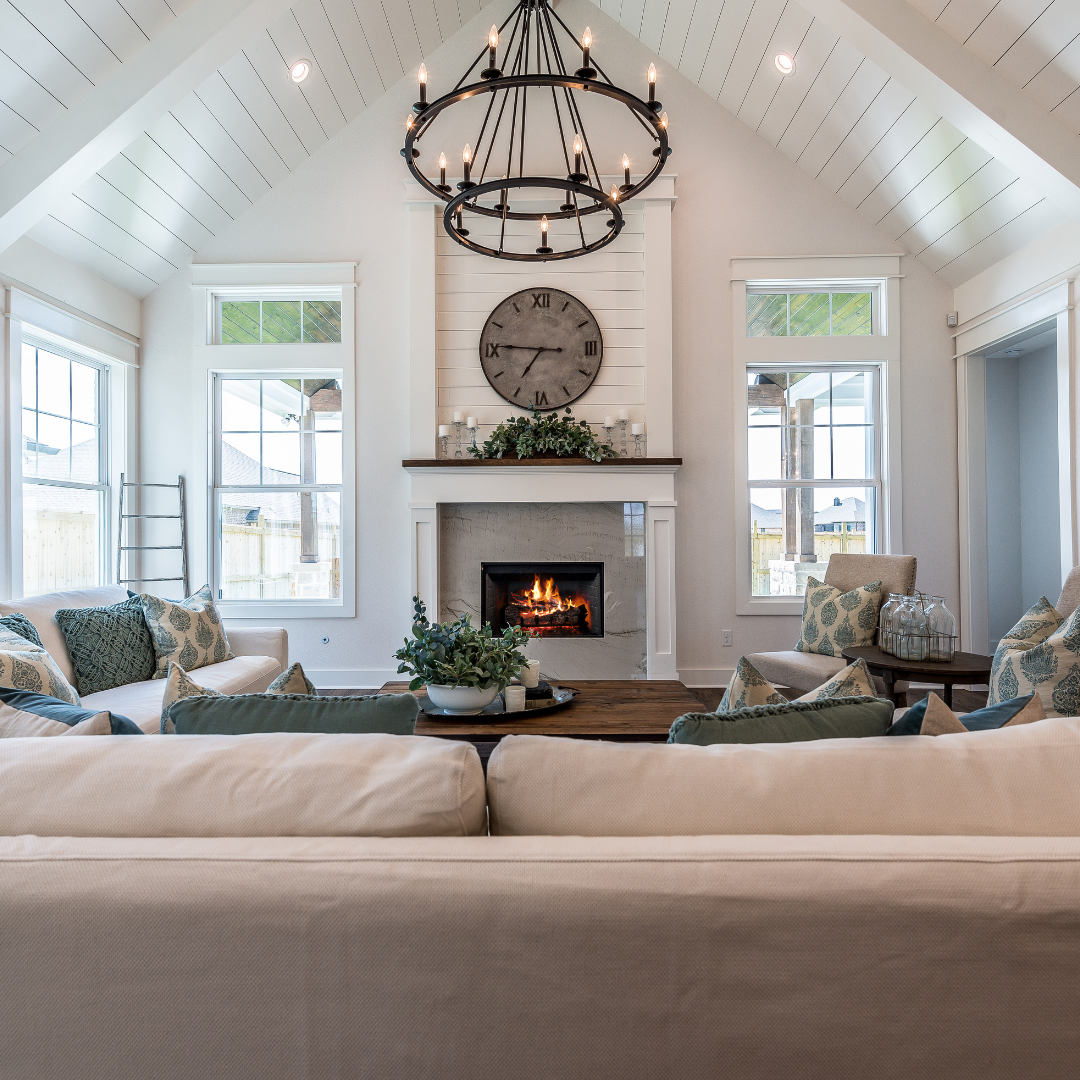Getting Started With Your Custom Home Build
If you’re planning to build a custom house, you might be thinking about a wide variety of things like deciding on the perfect floorplan, the budget, selecting the right finishes. The process can be overwhelming. That’s why it’s important to gather as much information as possible before you start building so that you know what to expect and can feel fully prepared for your build.
Whether you have been planning to build your own custom home for a while, or you are just starting to think about it, this article starts at the very beginning of the process and helps you prepare to build your home.
Make a Budget
Setting a budget for a new house is an important step in the home-buying process and the same holds true for building a home. And it's a great time to assess your financial situation. Determine your current income, savings, and any other financial obligations you have. This will give you a clear picture of your overall financial health and will help you determine what you can afford. Establishing a budget also includes:
- Calculating your down payment: Decide on the amount you can afford to put down as a down payment. It is generally recommended to put down at least 20% of the home's purchase price to avoid private mortgage insurance (PMI), although there are programs available with lower down payment options.
- Determining your debt-to-income ratio: Lenders typically use the debt-to-income (DTI) ratio to assess your ability to manage monthly mortgage payments. Your DTI is calculated by dividing your total monthly debt payments (including the projected mortgage payment, utilities, transportation costs, groceries, insurance, and any other recurring payments) by your gross monthly income. A lower DTI ratio is generally preferred by lenders.
- Estimating housing costs: Use online mortgage calculators to estimate your potential monthly mortgage payment based on different home prices, interest rates, and loan terms. Consider additional costs such as property taxes, homeowners association fees, and home insurance. And beyond the mortgage, there are other expenses associated with homeownership. These may include maintenance and repairs, property upgrades, and potential increases in utility costs. Factor in these expenses when setting your budget.
- Getting pre-approved for a mortgage: Once you have a general idea of your budget, it's recommended to get pre-approved for a mortgage. This process involves providing your financial information to a lender who will assess your eligibility and give you an idea of the loan amount you qualify for.
Remember, setting a budget is crucial to ensure you can comfortably afford your new home without straining your finances. Be realistic and consider your long-term financial goals.
Determine Your Timeframe
Determining a timeframe to build a home can vary depending on several factors, including the complexity of the project, the size of the home, the availability of labor and materials, and any unforeseen circumstances that may arise during the construction process. Your builder can help to guide you through understanding the complexities and has invaluable knowledge of the construction industry in your area. Here are some key considerations to help you estimate a timeframe:
- Size and complexity of the home: Larger and more complex homes tend to take longer to build. The number of rooms, levels, and special features (such as custom designs or intricate finishes) can impact construction time.
- Construction method: The construction method you choose can affect the timeline. Traditional stick-built homes usually take longer compared to modular or prefab homes, which are often manufactured off-site and assembled more quickly.
- Permitting and approvals: The time required to obtain permits and approvals from local authorities can vary depending on your location. It's important to research the specific requirements in your area and consider the potential timeline for these processes.
- Weather conditions: Inclement weather can significantly impact construction schedules, especially if there are frequent rainstorms, snowfall, or extreme temperatures. Plan for potential weather delays and work with your builder to adjust the schedule accordingly.
- Availability of labor and materials: The availability of skilled labor and construction materials can affect the construction timeframe. If there is a shortage of labor or delays in material deliveries, it may extend the overall completion time.
- Builder experience and workload: The experience and workload of your chosen builder can influence the timeframe. Established builders with good track records may have better systems in place and be able to complete projects more efficiently.
- Project management and coordination: Effective project management and coordination between the builder, subcontractors, and suppliers are crucial for keeping the construction process on schedule. Clear communication and a well-defined construction plan can help avoid delays.
- Unforeseen circumstances: It's important to anticipate unexpected challenges or delays that may arise during construction, such as site issues, contractor or supplier delays, or design changes. These unforeseen circumstances can impact the overall timeline.
While it's challenging to provide an exact timeframe without knowing the specifics of your project, a custom-built home can typically take anywhere from several months to over a year to complete. Working closely with your builder and regularly communicating about progress and any potential delays can help you establish a more accurate timeline for your specific home construction project.
Find the Property for Your Custom Home
Finding the right property for a custom-built home requires careful consideration and research. Here are some steps to help you in your search:
- Determine your requirements: Before starting your search, clarify your requirements and preferences for the property. Consider factors such as location, size of the lot, neighborhood, proximity to amenities, views, and any specific features or restrictions you desire.
- Set a budget: Establish a budget for the land purchase. This will help you narrow down your options and focus on properties that align with your financial capacity.
- Research: Utilize real estate websites, property listing platforms, and online databases to search for available land in your desired location. Specify your search criteria, such as location, size, and any other relevant features.
- Work with a real estate agent: Engage the services of a local real estate agent who specializes in land sales or custom-built homes. They can provide you with valuable insights, access to exclusive listings, and assist you throughout the buying process.
- Network within the community: Reach out to local builders, architects, and professionals involved in the construction industry. They often have knowledge of available land or can refer you to potential sellers or landowners.
- Drive or walk around your desired area: Take time to explore the neighborhoods or areas where you would like to build your custom home. Look for "For Sale" signs, vacant lots, or properties that might not be actively marketed.
- Consider contacting developers: If there are new developments or subdivisions in progress in your desired area, reach out to the developers to inquire about available lots or upcoming releases.
- Verify zoning and regulations: Before finalizing any purchase, ensure that the land you're considering is zoned for residential construction and that there are no restrictions or regulations that would impede your plans for a custom-built home.
- Engage professionals for due diligence: Once you identify a potential property, involve professionals such as land surveyors, soil engineers, and environmental consultants to assess the land's suitability for construction and identify any potential issues or concerns.
Remember to conduct thorough due diligence and seek professional advice throughout the process to ensure you make an informed decision when selecting a property for your custom-built home.
Building a custom home can be an exciting and rewarding experience, but it also requires careful planning, decision-making, and patience. The end result can be a dream home that perfectly suits your lifestyle and preferences. It's important to work closely with professionals, stay engaged throughout the process, and be prepared for the unique challenges that may arise. Southern Charm Building & Construction Inc. can help with every step of the process, from initial design to final inspection. Call us today at 352-631-8983 and let’s get started.

